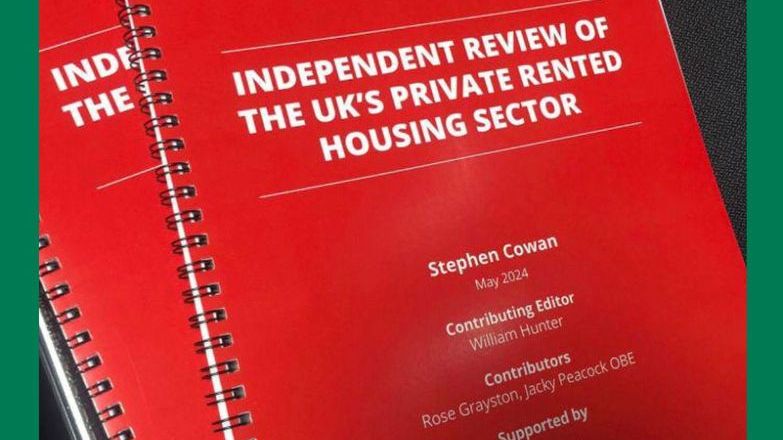
The Private Rented Sector Commission, Chaired by Councillor Stephen Cowan, leader of the London Borough of Hammersmith and Fulham, produced the report, which puts forward suggestions to raise standards and improve security for renters in the Private Rented Sector (PRS). Propertymark's CEO, Nathan Emerson and Head of Policy and Campaigns, Timothy Douglas, met Councillor Cowan as part of the review and fed into the work of the Commission on behalf of our members.
Registration and accreditation
Recognising the current low bar to entry for property agents, the report recommends that letting and managing agents should register on a new National Landlord Register (alongside self-managing landlords), pay an annual registration fee, and undertake regular training and testing to maintain their accreditation.
Agents should be made responsible for legally ensuring homes are safe and meet public health, Decent Homes and other standards. Failure to take reasonable action when tenants raise concerns should be subject to a fine, and knowingly letting or allowing a home to remain unsafe for human habitation should cause the agent to lose their accreditation and could be a criminal offence.
Rent stabilisation
The report concludes that ‘first generation ‘rent freezes’ and third generation rent controls - which restrict the increase in rent within tenancies but not between them - do not work and are damaging to the market.
Instead, a stabilisation model is recommended for England and Wales that would outlaw rent review clauses and only allow annual increases. Tenants would have to be given four months’ notice of the new rent, and there would be a cap based on local wage growth or CPI, whichever is lower.
The authors acknowledge that introducing these measures may cause some landlords to leave the sector, increasing pressures on supply in the short-term. However, they state that this is likely to happen anyway due to other economic factors such as ongoing high mortgage rates.
Longer term tenancies
Instead of introducing longer fixed-terms, the recommendation made by the Commission is to move to open-ended periodic tenancies which can only be ended on defined grounds.
It is not clear which specific grounds they suggest should be provided for, although they point to the Renting Homes (Wales) Act 2016 as a model. However, they support abolishing Section 21, and add that landlords should not be able to evict tenants in order to sell a property or to move family members into it, as these are likely to become methods for no-fault eviction by the back door.





